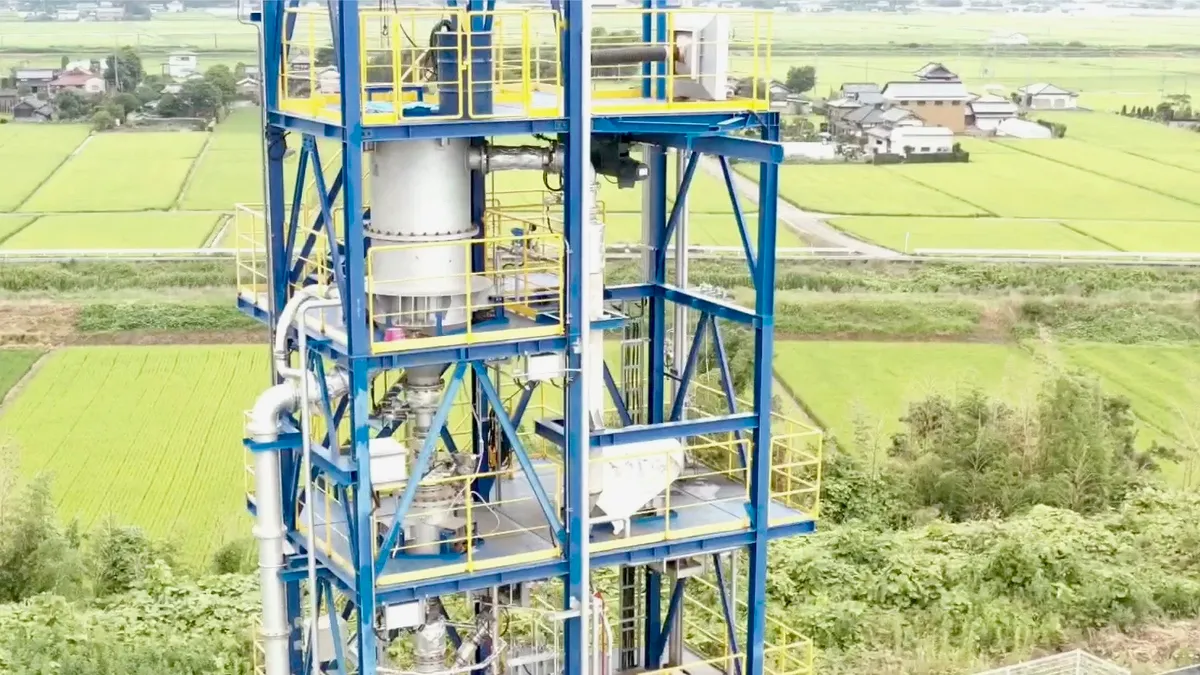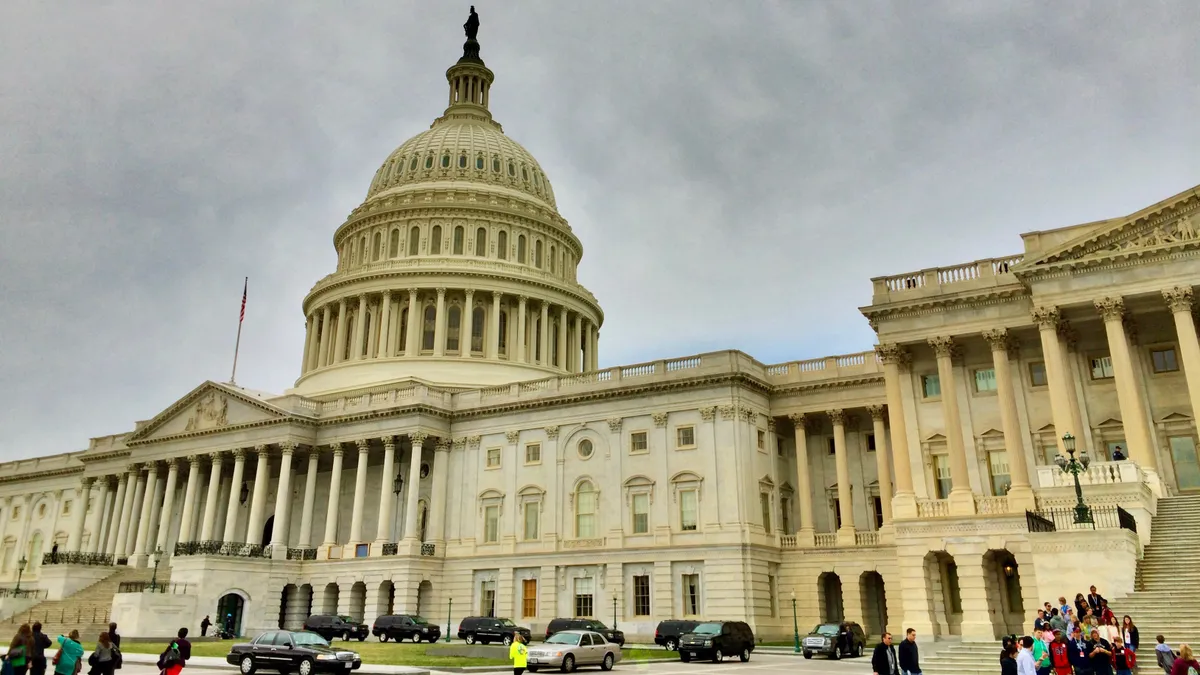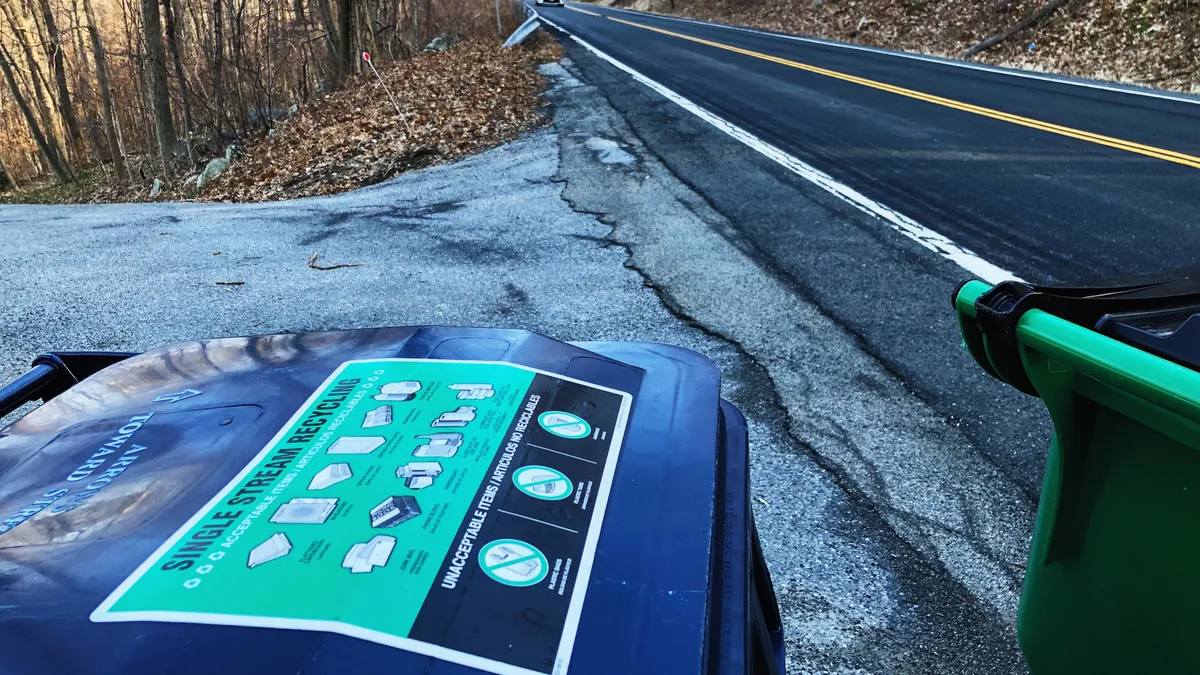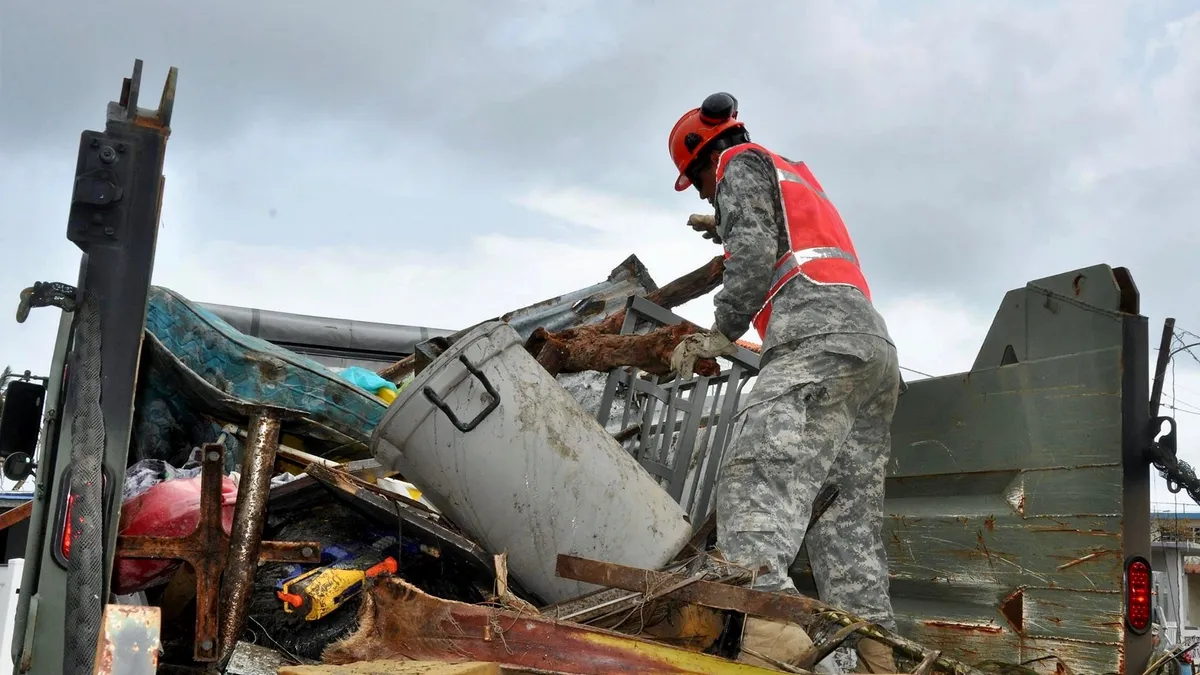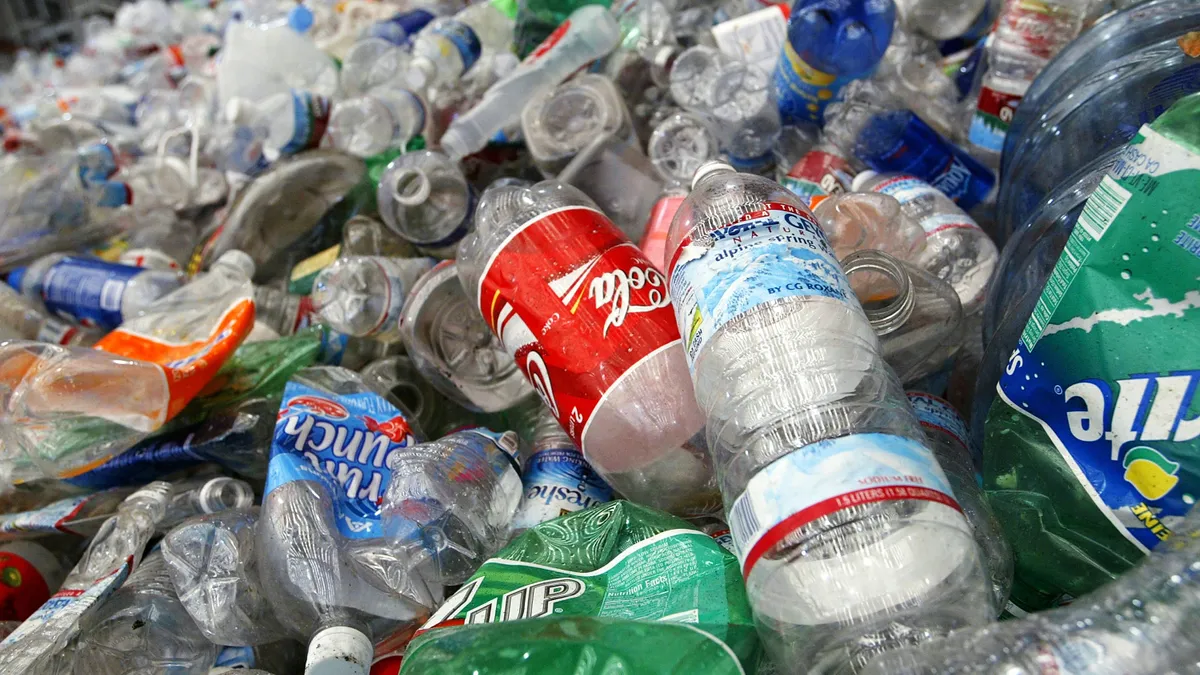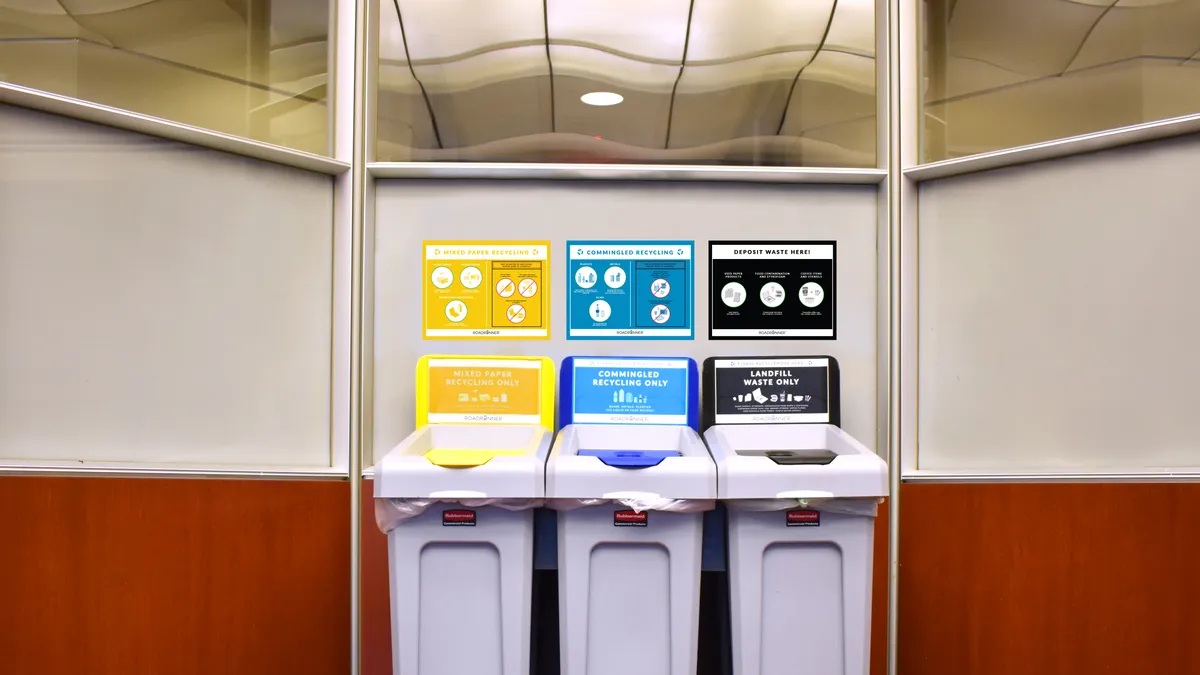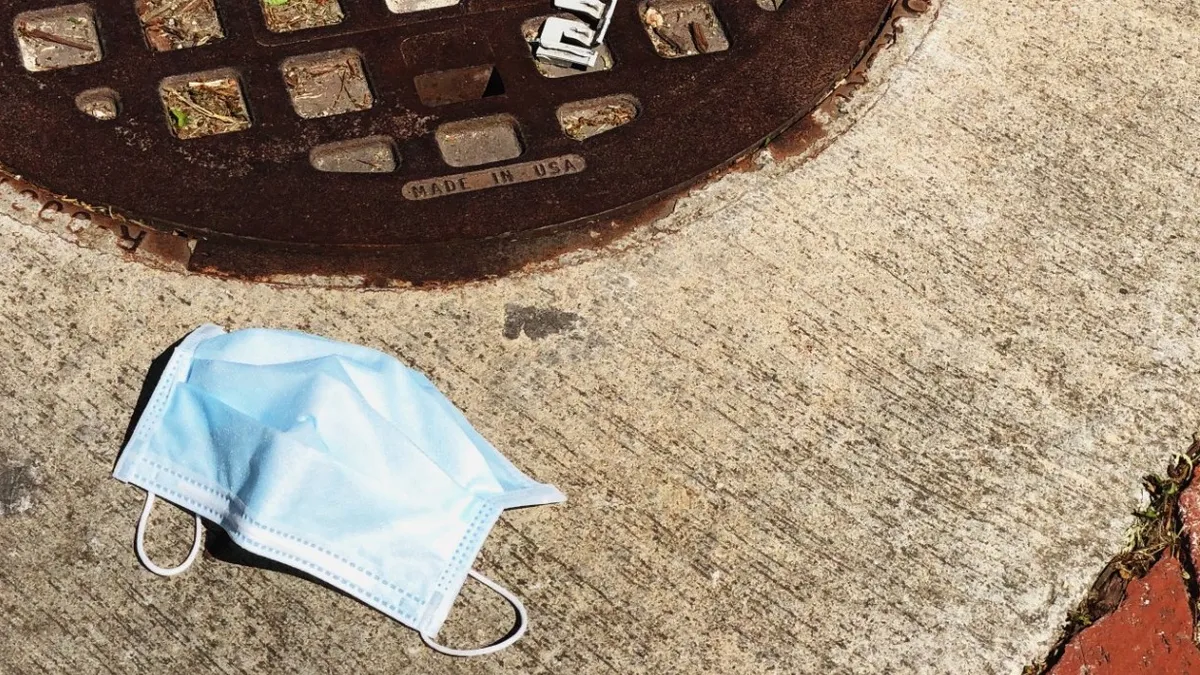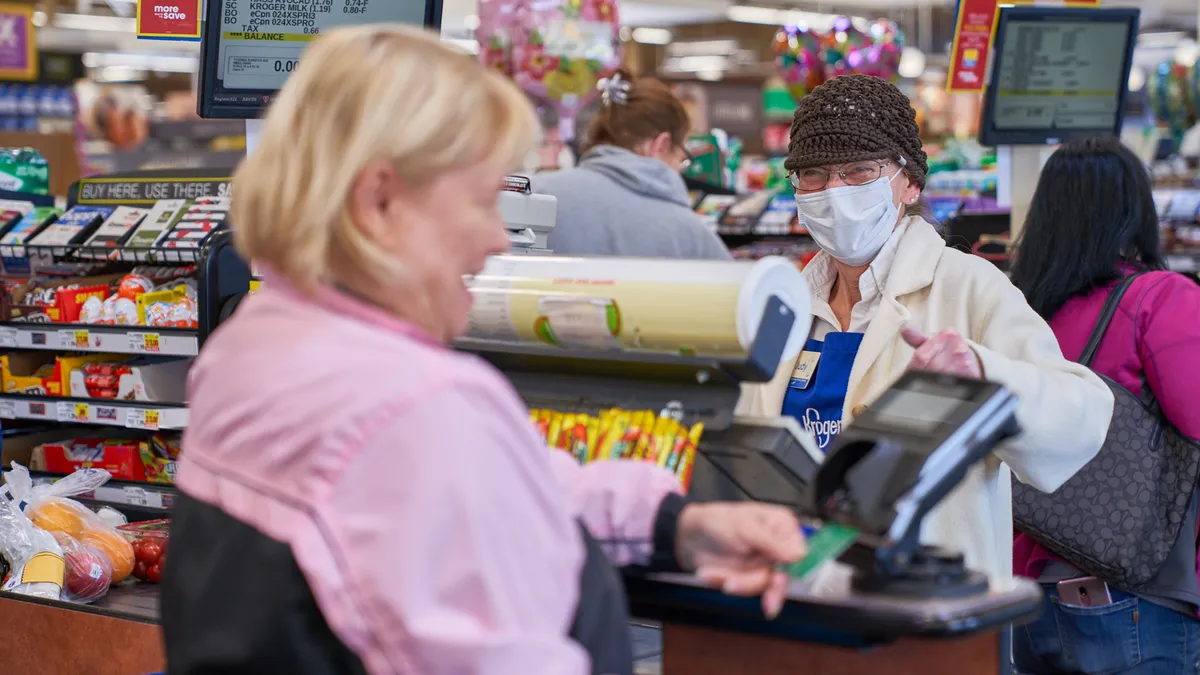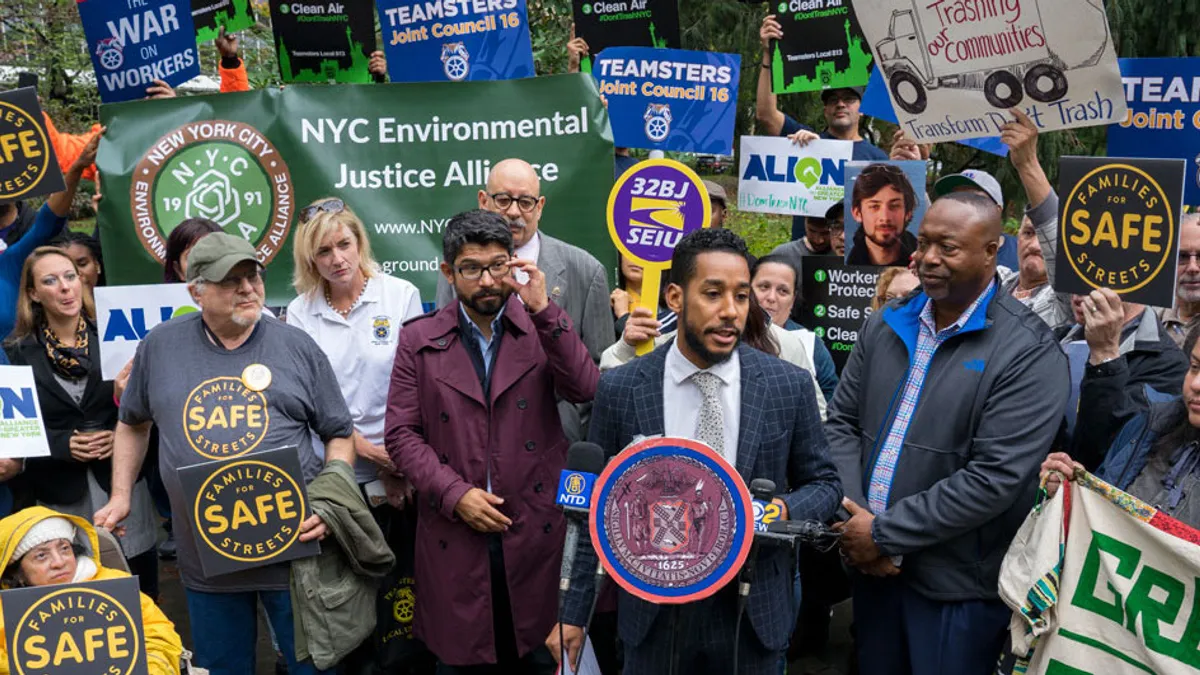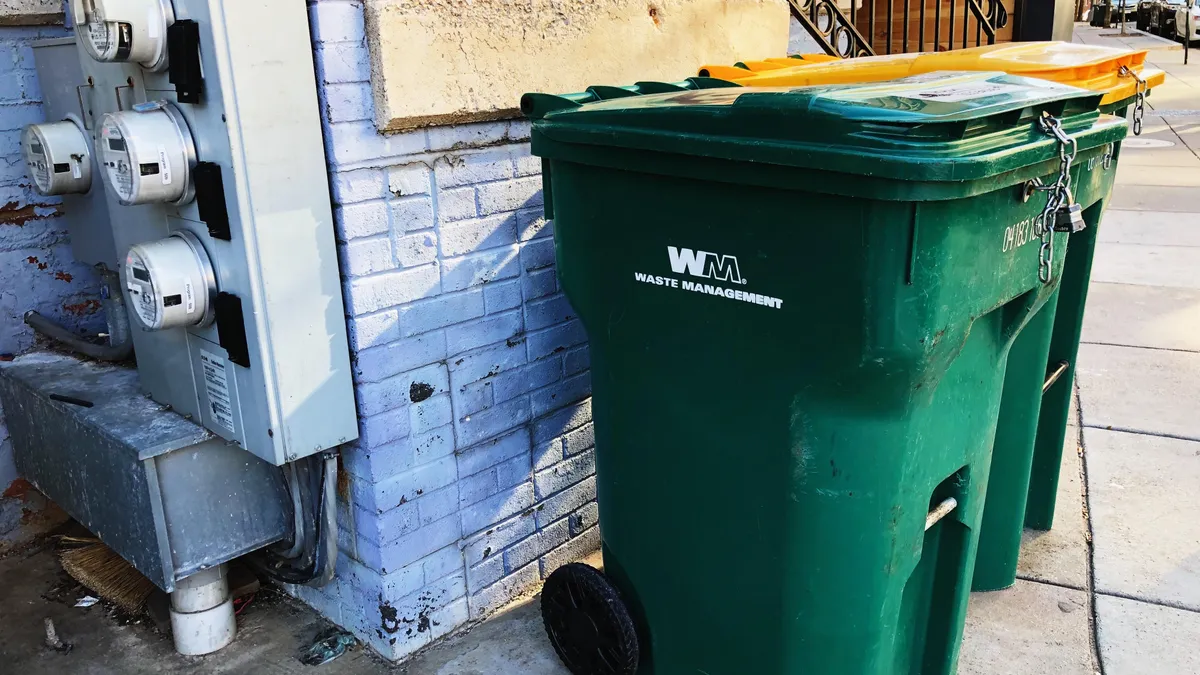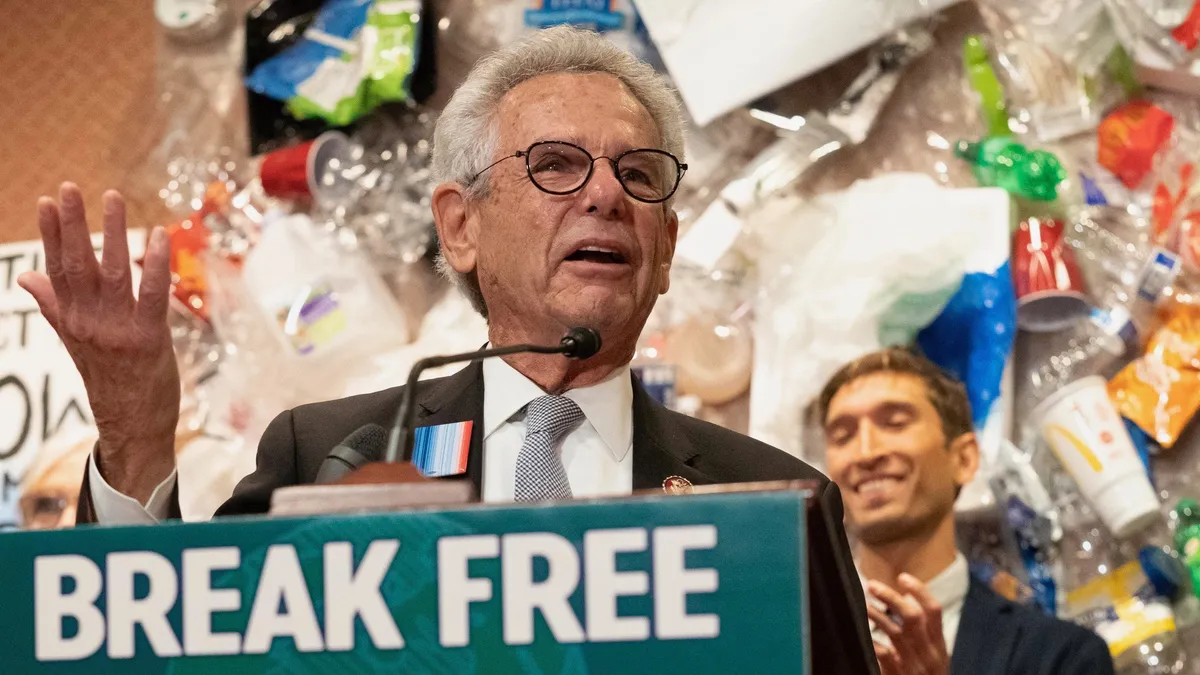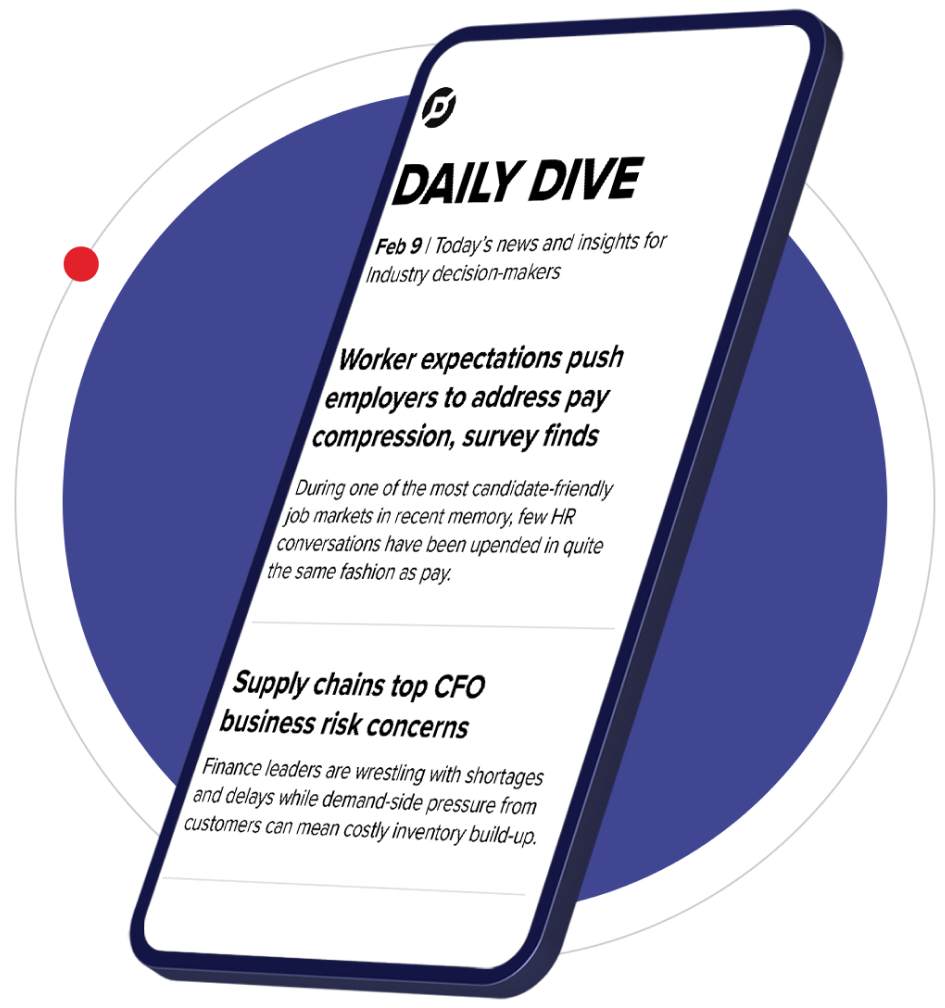Zero Waste: Page 14
-
Opinion
New waste-to-hydrogen processes could contribute to a carbon negative future
Jean-Louis Kindler, CEO of waste-to-hydrogen developer Ways2H, discusses how the waste sector could benefit from the use of the technology as it seeks to mitigate its climate impact.
By Jean-Louis Kindler • June 3, 2020 -
Recycling coalition asks Congress to pass EPR bill over plastics-backed RECOVER amid relief talks
Environmental nonprofits have pushed back on recent industry efforts to get priority legislation included in potential pandemic relief bills. Now, they're pointing to the Break Free From Plastic Pollution Act as part of the solution.
By E.A. Crunden • June 1, 2020 -
Rubicon's first ESG report emphasizes software pivot, $208M potential savings for cities
The technology company plays up its municipal offerings and highlights case studies from commercial customers, while talking about a "waste wake-up call." More detailed climate metrics are expected in a future edition.
By Cole Rosengren • May 22, 2020 -
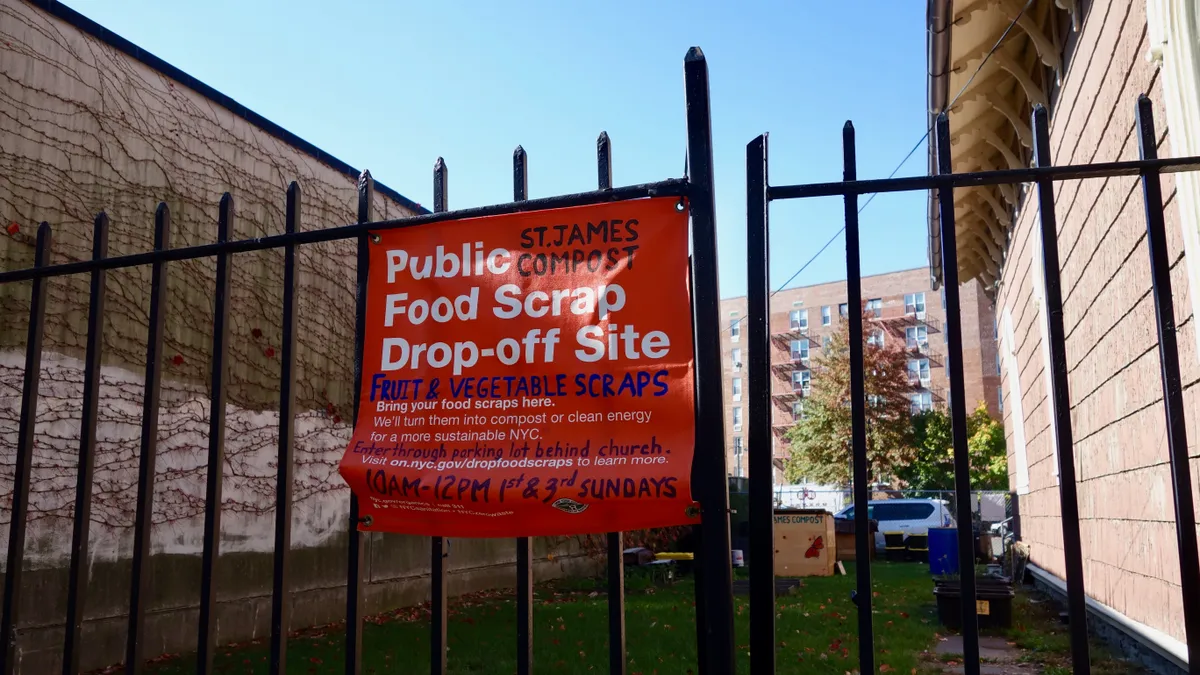
 The image by Tdorante10 is licensed under CC BY-SA 4.0
The image by Tdorante10 is licensed under CC BY-SA 4.0
New York follows through with sanitation cuts, preserves some organics funding
Mayor Bill de Blasio's administration cut funding for curbside organics collection, recycling outreach and other areas in a new budget agreement. Funding for drop-off sites and community composting was preserved.
By E.A. Crunden • Updated July 1, 2020 -
Recycling proponents split on $1B RECOVER Act ask for future pandemic relief package
Environmental groups have decried the push for additional infrastructure funding as a "plastics bailout." The picture is more complicated when factoring in stances from other trade groups, including the glass and fiber sectors.
By E.A. Crunden • May 11, 2020 -
Deep Dive
Puerto Rico's yearslong debate over WTE continues as the island's landfill issues mount
After a proposed incinerator project stalled in 2018, the territory's long-term plan remains uncertain as noncompliant landfills are reaching capacity. Meanwhile, recycling programs and waste reduction efforts are still evolving.
By Genevieve Glatsky • May 1, 2020 -
With EPR bills frozen due to coronavirus in many states, proponents still see path forward
The coronavirus has paused activity for high-profile bills focused on packaging, including one with momentum in Maine. Backers believe the current financial strain on local governments makes these policies even more important.
By E.A. Crunden • April 24, 2020 -
RoadRunner Recycling CEO says new $28.6M funding round to fuel expansion, despite pandemic
Graham Rihn discusses the Pittsburgh company's plans to scale its business, focused on capturing smaller volumes through source-separated collection, along with COVID-19 effects for a variety of customers.
By Cole Rosengren • April 22, 2020 -
One year covering COVID-19's impact on the waste and recycling sector
The coronavirus pandemic brought sweeping changes to the U.S., including significant effects for an industry that continued its work throughout the crisis. Catch up on all of Waste Dive's reporting from the initial year.
By Waste Dive Team • Updated March 15, 2021 -
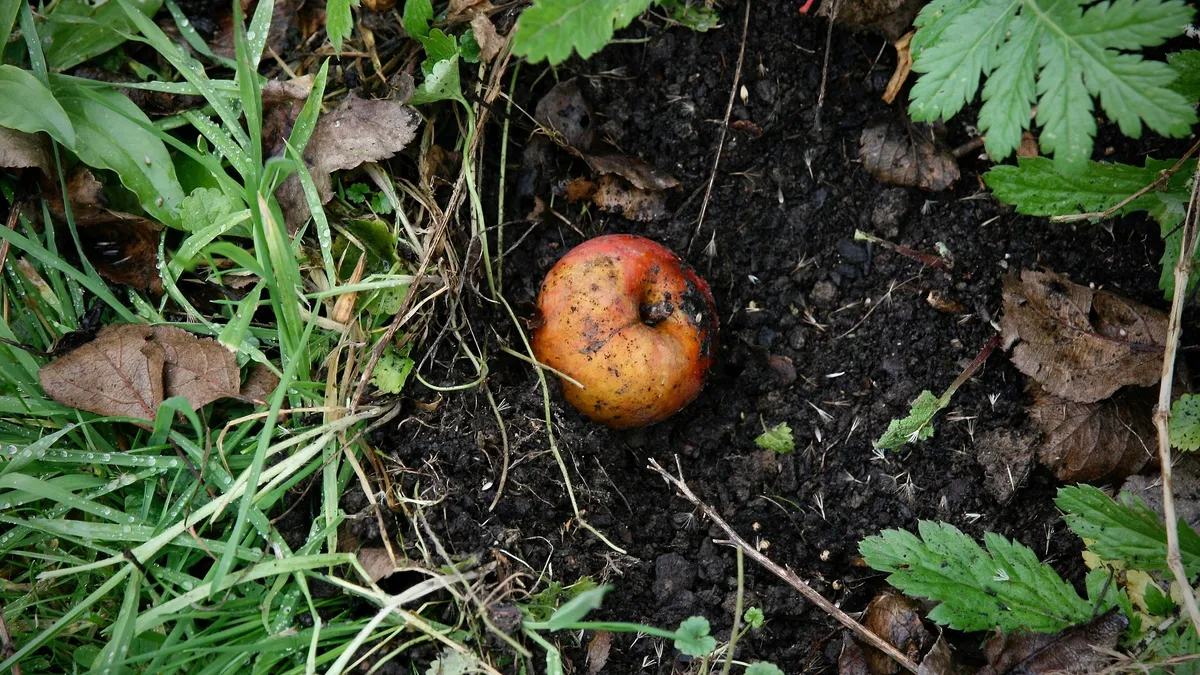
 Annette Meyer. (2018). Retrieved from https://pixabay.com/photos/autumn-windfall-apple-compost-3795989/.
Annette Meyer. (2018). Retrieved from https://pixabay.com/photos/autumn-windfall-apple-compost-3795989/.
Reducing food waste emerges as key climate solution
Project Drawdown's 2020 report, released before the pandemic, elevated food waste as an increasingly relevant solution while highlighting the role industry can play in tackling the issue through reducing waste sent to landfills.
By E.A. Crunden • April 16, 2020 -
Dishwashers and data laid the groundwork for California city's landmark waste reduction ordinance
The ReThink Disposable program, designed to help restaurants switch to reusables, was a model for Berkeley's foodware ordinance set to fully take effect this summer. Whether the COVID-19 pandemic will disrupt those plans remains to be seen.
By Karine Vann • April 9, 2020 -
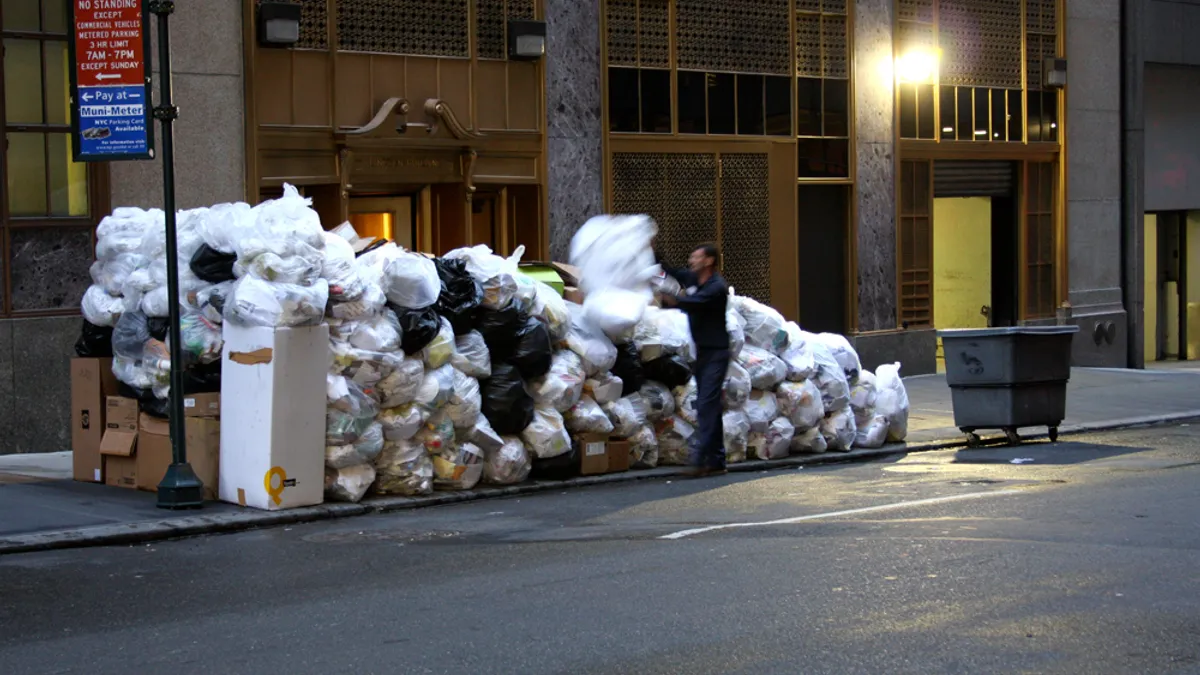
 The image by mulmatsherm is licensed under CC BY-SA 2.0
The image by mulmatsherm is licensed under CC BY-SA 2.0
New York bans expanded polystyrene foam products statewide
Gov. Andrew Cuomo approved the legislation, which will take effect in 2022. New York joins Washington in showing a willingness to target some plastics, despite a push by industry groups to promote their products during the pandemic.
By E.A. Crunden • Updated April 3, 2020 -
Single-use plastic bag supporters cite coronavirus risks in reviving sanitation concerns over reusables
Some states are changing policies as an old debate gains new traction. While prior research shows consumers could wash reusable bags more often, there's no clear proof single-use bags are less likely to spread the novel coronavirus.
By Leslie Nemo • April 2, 2020 -
Opinion
How to talk about EPR, product stewardship and minimum content policies
Neil Seldman, director of the Institute for Local Self-Reliance's Waste to Wealth initiative, advocates for the use of common terminology in policy discussions around recycling.
By Neil Seldman • March 27, 2020 -
COVID-19 puts BYO coffee cups on hold, but sanitized reusable systems could fill the void
Major brands like Starbucks and Dunkin' have banned the use of personal to-go containers in recent weeks over coronavirus fears, raising new questions in a wider debate around packaging safety.
By Karine Vann • March 25, 2020 -
Oregon DEQ calls for emphasis on 'low-impact' materials, not 'recyclable'
As highlighted in a recent Northeast Recycling Council webinar, research shows that a recyclable product isn’t always the one that creates less waste or uses fewer valuable resources.
By Leslie Nemo • Updated April 1, 2020 -
New York City Council outlines big plans for curbside organics, textiles and EPR
A new agenda calls for the expansion of curbside residential organics collection citywide, along with more than a dozen other policies, to accelerate progress toward "zero waste" by 2030. Mention of a "save-as-you-throw" program is notably absent.
By Cole Rosengren • March 16, 2020 -
Ambrosia, organics recycler behind food waste-based cleaning product, eyes expansion
The company is still scaling up plans for more processing capacity, but its CEO also now sees potential for a new business line. The concept could gain traction amid rising consumer awareness of food waste, experts say.
By Cole Rosengren • March 10, 2020 -
Baltimore council members back goal of 'zero waste' by 2040 amid incinerator litigation
Activists pushing for the closure of Wheelabrator Baltimore are calling for a dramatic turn toward waste reduction and diversion. A majority of council members introduced a resolution Monday in support of that plan.
By E.A. Crunden • Updated March 10, 2020 -
House lawmakers debate regulatory role of federal government in plastics and recycling
In a Wednesday hearing, lawmakers formed stances along partisan lines over several pieces of federal recycling legislation. Republicans took a hard line against plastics bans and seemed to scrutinize shifting oversight to the federal government.
By E.A. Crunden • March 5, 2020 -
Gov Inslee signs Washington single-use bag ban, vetoes PCR requirements
Plastics were a prominent focus for state lawmakers this session. While Washington will join a growing list of states by banning bags, it will not pursue recycled content requirements due to fiscal concerns.
By E.A. Crunden • Updated April 6, 2020 -
Waste Management's Tara Hemmer says industry needs to be more proactive on climate issues
Speaking at the Global Waste Management Symposium, the senior vice president emphasized a need to be more proactive around emerging topics such as plastics and the Green New Deal.
By E.A. Crunden • Feb. 26, 2020 -
NextGen Cup Challenge, driven by McDonald's and Starbucks, rolls out reusable cup pilot in California
The programs — set to debut at independent coffee shops around San Francisco and Palo Alto — could pave the way for major chains to eventually make the switch as they seek to meet their environmental goals.
By E.A. Crunden • Feb. 20, 2020 -
Break Free From Plastic Pollution Act debuts in Congress, instigating packaging EPR debate
The bill would also establish a national container deposit system, ban single-use plastic products and set recycled content requirements. Staunch opposition is expected from some recycling and plastics trade groups.
By E.A. Crunden • Feb. 11, 2020 -
National EPR campaign kicks off with anti-plastic film screening, activist support
Rep. Alan Lowenthal, sponsor of the upcoming Break Free From Plastic Pollution Act, rallied activists around the bill at a Washington event. The film teases out likely divides between industry and advocacy groups.
By E.A. Crunden • Feb. 10, 2020

